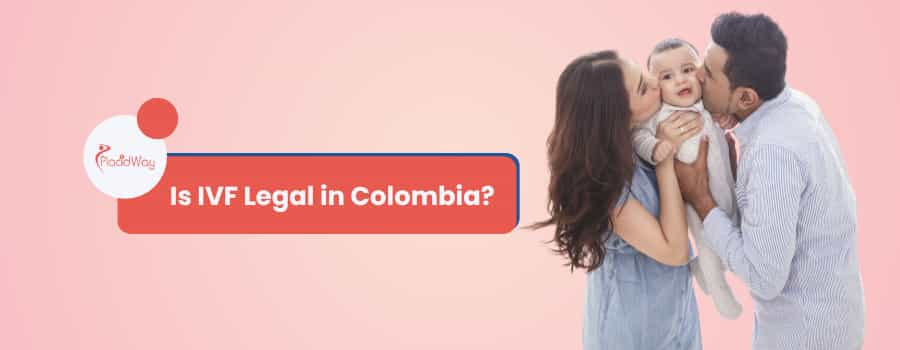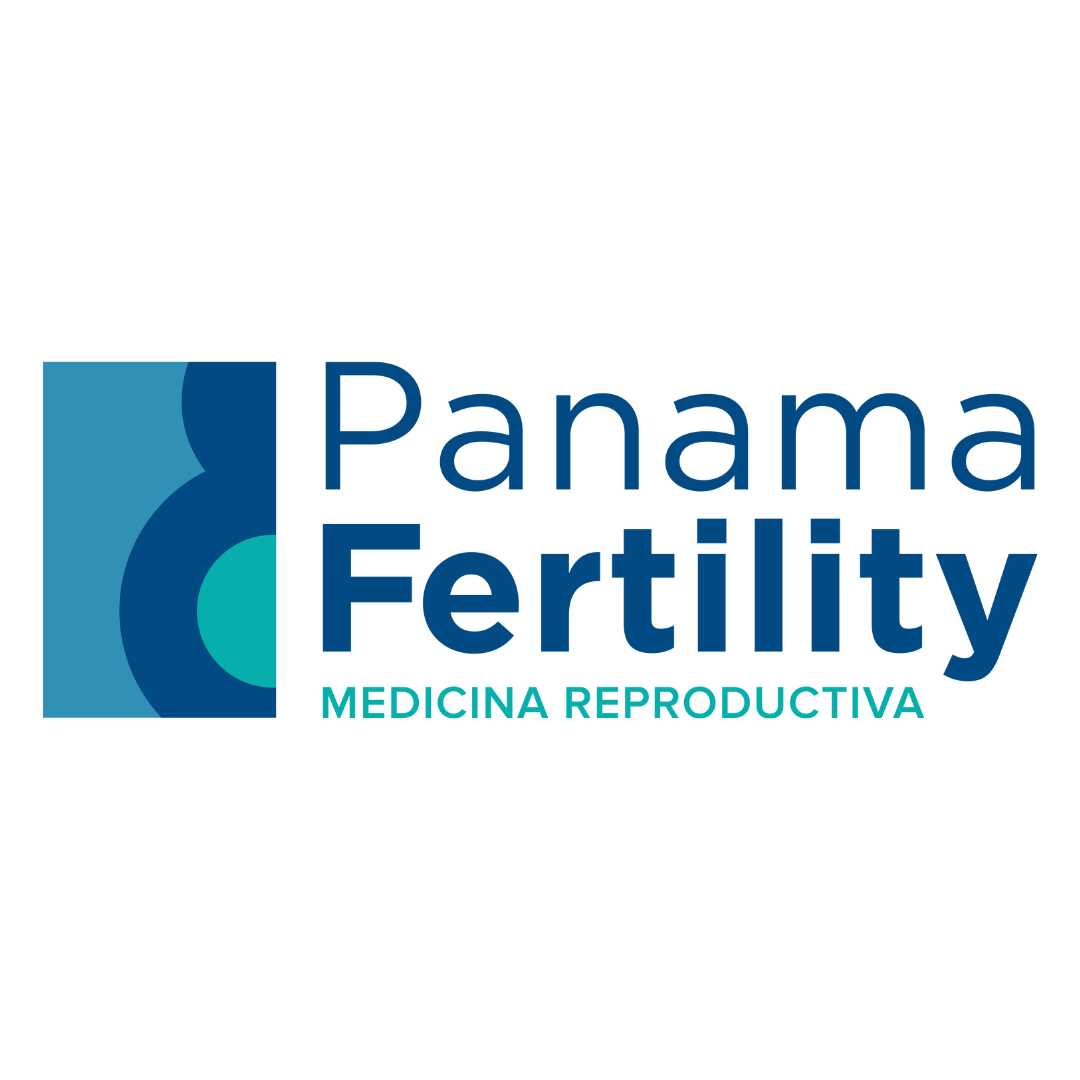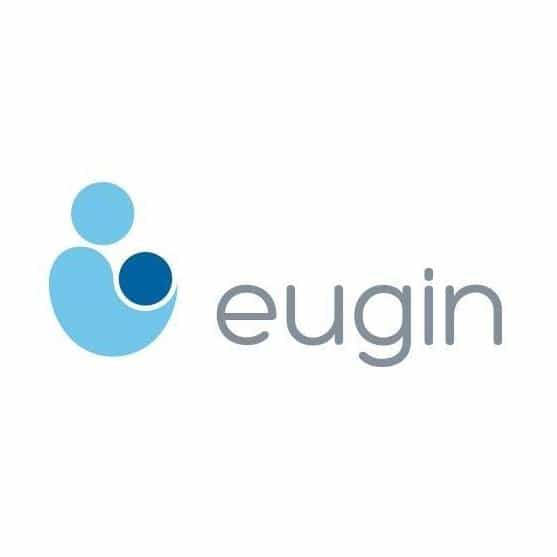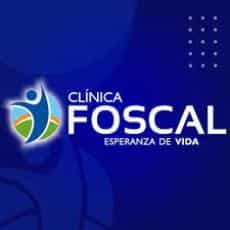What is the legal status of IVF in Colombia?

If you're exploring options for building your family, you might be wondering about the legal landscape of fertility treatments in different countries. Today, we're going to dive into a common question: Is IVF legal in Colombia? The short answer is a resounding yes! Colombia has emerged as a significant destination for individuals and couples seeking assisted reproductive technologies, including In Vitro Fertilization.
This is largely due to a progressive legal environment that, while not always based on specific, comprehensive laws, is strongly supported by constitutional principles and a series of important court decisions. This framework ensures that a broad spectrum of people, including heterosexual couples, single individuals, and same-sex couples, can access these life-changing treatments. We'll explore the nuances of this legal standing, what it means for those considering IVF in Colombia, and answer many other related questions you might have.
Is IVF explicitly legal in Colombia?
While there isn't one overarching, specific law dedicated solely to IVF, the practice is indeed legal and widely available in Colombia. Its legality stems from the fundamental constitutional right to form a family and access reproductive health services, as affirmed by the Colombian Constitutional Court. This means that while a dedicated statute might not exist, the judicial system has consistently upheld the right of individuals to pursue assisted reproduction. This legal foundation provides a secure environment for fertility clinics to operate and for patients to undergo IVF procedures. The absence of a single, comprehensive law can sometimes lead to questions, but the consistent judicial support effectively legitimizes and protects IVF treatments across the country.
What is the legal framework for IVF in Colombia?
The legal framework for IVF and other assisted reproductive technologies in Colombia is primarily rooted in the country's Constitution. Specifically, Article 42-6 of the Colombian Constitution states that "Children born in or out of wedlock, adopted and procreated naturally or with scientific assistance, have equal rights and duties. The law will regulate the responsible offspring." This article forms the bedrock upon which the legality of IVF rests. Beyond this constitutional provision, a series of Constitutional Court rulings have further solidified the legal standing of assisted reproduction. These rulings have interpreted the constitutional right to form a family broadly, encompassing the use of scientific assistance to achieve parenthood. For instance, decisions like Sentence T-968 of 2009 have played a crucial role in recognizing and legitimizing assisted reproductive methods, including IVF. These judicial pronouncements effectively fill the gap left by the absence of a specific legislative act, providing a clear legal pathway for fertility treatments.
Are there any specific regulations or guidelines for IVF clinics in Colombia?
While there isn't a single, comprehensive law explicitly regulating IVF, clinics in Colombia operate under the general oversight of the Ministry of Health and Social Protection. This means they are expected to comply with broader healthcare regulations and standards that ensure patient safety and quality of care. Many reputable clinics also voluntarily adhere to international medical standards and ethical guidelines, often seeking international accreditations to demonstrate their commitment to high-quality practices. These guidelines typically cover aspects such as:
- Patient screening: Ensuring that patients are medically and psychologically suitable for treatment.
- Laboratory standards: Maintaining strict protocols for handling gametes and embryos.
- Informed consent: Requiring comprehensive consent from all parties involved in the treatment.
- Record keeping: Maintaining detailed records of procedures and outcomes.
The lack of highly specific IVF legislation means that clinics often rely on their own internal protocols, informed by best practices from other countries with more established reproductive laws.
Can single individuals undergo IVF in Colombia?
One of the progressive aspects of Colombia's approach to assisted reproduction is its inclusivity. Single individuals, whether male or female, are generally permitted to undergo IVF treatments. This non-discriminatory stance is consistent with the broader constitutional principles that protect the right to form a family for all citizens, regardless of their marital status. For single women, this often involves the use of donor sperm. For single men, it typically involves the use of donor eggs and a gestational surrogate. Clinics in Colombia are accustomed to working with single intended parents and can guide them through the necessary steps, including donor selection and legal considerations.
Is IVF available for same-sex couples in Colombia?
Colombia has made significant strides in recognizing LGBTQ+ rights, including same-sex marriage and adoption. This progressive stance extends to assisted reproductive technologies, making IVF accessible to same-sex couples. The legal framework, supported by Constitutional Court rulings, ensures that same-sex couples have the same rights to form a family as heterosexual couples. For female same-sex couples, IVF may involve using one partner's eggs and donor sperm, or donor eggs and donor sperm, with one partner carrying the pregnancy. For male same-sex couples, IVF would involve donor eggs and a gestational surrogate. Clinics in Colombia are generally welcoming and experienced in assisting same-sex couples through their fertility journeys, providing comprehensive support and guidance.
Are there any age limits for IVF in Colombia?
Colombia does not impose strict legal age limits for individuals seeking IVF treatment. However, fertility clinics will have their own medical guidelines and recommendations based on a patient's age and overall reproductive health. This is because the success rates of IVF naturally decline with age, particularly for women, due to factors such as egg quality and quantity. Clinics will conduct thorough medical evaluations to determine the most appropriate course of action and discuss the realistic chances of success. While there might not be a hard legal cutoff, clinics generally advise against treatment for women beyond a certain age (e.g., mid-40s) unless using donor eggs, where success rates can be higher. For men, age is less of a factor, though sperm quality can decline with advanced age.
Is egg donation legal and regulated in Colombia?
Egg donation is legal and commonly practiced in Colombia as part of IVF treatments. The process is generally anonymous, meaning the identity of the donor is not revealed to the recipient, and vice versa. Clinics adhere to strict screening protocols for potential egg donors to ensure their physical and mental health, as well as to minimize the risk of transmitting genetic conditions. The screening process for egg donors typically includes:
- Comprehensive medical history and physical examination.
- Genetic testing to rule out inheritable diseases.
- Psychological evaluation to assess suitability.
- Screening for infectious diseases.
These measures are in place to protect both the donor and the intended parents, ensuring the safety and ethical integrity of the donation process.
Is sperm donation legal and regulated in Colombia?
Similar to egg donation, sperm donation is legal and widely available in Colombia for individuals and couples undergoing IVF. The process typically maintains anonymity between the donor and the recipient. Reputable fertility clinics have established rigorous screening procedures for sperm donors to ensure the quality and safety of the donated gametes. The screening for sperm donors usually involves:
- Detailed medical history and physical examination.
- Genetic screening for inheritable conditions.
- Testing for infectious diseases.
- Semen analysis to assess quality and viability.
These comprehensive screening processes are crucial for safeguarding the health of the future child and the intended parents, upholding high ethical standards in assisted reproduction.
Is embryo freezing legal in Colombia?
Embryo freezing, also known as cryopreservation, is a legal and common practice in Colombia. This technology allows individuals and couples to store viable embryos that are not transferred during an IVF cycle for future use. This is particularly beneficial for those who wish to attempt multiple IVF cycles without repeating the egg retrieval process, or for those who want to preserve their fertility for later. The legal framework supports embryo freezing as it aligns with the right to reproductive autonomy. Clinics provide clear guidelines on the storage duration, maintenance fees, and options for the disposition of embryos if they are no longer needed, such as donation to other couples, donation for research, or thawing and discarding.
What are the regulations regarding embryo disposition in Colombia?
While specific legislation on embryo disposition may not be as detailed as in some other countries, the overarching principle in Colombia is that the intended parents have the right to decide the fate of their frozen embryos. This decision is typically made through informed consent forms and contractual agreements signed at the time of embryo freezing. The common options for embryo disposition include:
- Future use: Storing the embryos for subsequent IVF cycles.
- Donation to other couples: Donating embryos to other individuals or couples struggling with infertility.
- Donation for research: Donating embryos for scientific research purposes, usually with strict ethical oversight.
- Thawing and discarding: Choosing to have the embryos thawed and discarded, which is typically done in a respectful manner.
Clinics ensure that patients are fully aware of these options and their implications before making a decision.
Is preimplantation genetic testing (PGT) legal in Colombia?
Preimplantation genetic testing (PGT), which includes PGT-A (for aneuploidy), PGT-M (for monogenic diseases), and PGT-SR (for structural rearrangements), is legal and available in Colombia. This advanced genetic screening technique is offered by many fertility clinics to help identify genetic abnormalities in embryos before they are transferred to the uterus. PGT can significantly improve IVF success rates and reduce the risk of passing on genetic disorders. PGT is typically recommended for:
- Couples with a history of recurrent miscarriages.
- Couples who have experienced multiple failed IVF cycles.
- Individuals or couples known to be carriers of specific genetic diseases.
- Women of advanced maternal age.
The use of PGT is guided by medical necessity and ethical considerations, with clinics ensuring proper counseling and informed consent.
Are there any restrictions on the number of embryos transferred in Colombia?
Colombia does not have a strict legal mandate on the maximum number of embryos that can be transferred during an IVF cycle. However, reputable fertility clinics in Colombia generally adhere to international medical guidelines and best practices to minimize the risks associated with multiple pregnancies (e.g., twins, triplets). The trend in modern IVF is to transfer fewer embryos, ideally one or two, to optimize success rates while prioritizing the health of both the mother and the babies. The decision on the number of embryos to transfer is made in consultation between the patient and the fertility specialist, taking into account factors such as:
- Patient's age.
- Quality of the embryos.
- Previous IVF history.
- Overall health of the patient.
The goal is to achieve a healthy singleton pregnancy whenever possible.
Is commercial surrogacy legal in Colombia?
The legal landscape for surrogacy in Colombia is complex. While surrogacy itself is not prohibited and is supported by constitutional rulings, commercial surrogacy (where a surrogate mother is paid a fee beyond her expenses) is not explicitly regulated or sanctioned. The prevailing interpretation of the legal framework leans towards altruistic surrogacy, where the surrogate receives compensation for her expenses related to the pregnancy, rather than a commercial payment. This distinction is important, as it aims to prevent the commodification of human reproduction. While there isn't a specific law banning commercial surrogacy, the courts have emphasized the altruistic nature of such arrangements. It is crucial for intended parents considering surrogacy in Colombia to seek expert legal advice to ensure compliance with the current interpretations and to protect the rights of all parties involved.
What are the requirements for intended parents in Colombia?
The requirements for intended parents seeking IVF in Colombia are generally focused on ensuring they are medically and psychologically prepared for the process and parenthood. While specific legal requirements might not be as rigid as in some other countries, clinics will typically require:
- Medical evaluation: A thorough assessment of the intended parents' health to determine the most suitable treatment plan and address any underlying fertility issues.
- Psychological evaluation: An assessment to ensure the emotional and mental readiness for the IVF journey and the responsibilities of parenthood.
- Informed consent: Comprehensive understanding and agreement to the IVF procedures, potential risks, and financial implications.
- Demonstration of medical need: In some cases, intended parents may need to demonstrate a medical reason for requiring assisted reproduction, especially if considering options like surrogacy.
For international patients, additional requirements related to travel and legal documentation for their home country may apply.
Are there any restrictions on genetic material (e.g., genetic link to child) for IVF in Colombia?
For standard IVF procedures where the intended parents are carrying the pregnancy, there are generally no explicit legal restrictions requiring a genetic link to the child if donor gametes are used. This means that IVF with both donor eggs and donor sperm (double donation) is typically permissible. However, when it comes to surrogacy arrangements in Colombia, the legal interpretation often emphasizes the need for a genetic link between at least one of the intended parents and the child. This is a crucial distinction and aims to establish clear parental rights and avoid situations where no genetic connection exists between the child and the intended parents. Therefore, while IVF with donor gametes is broadly accepted, its application within a surrogacy context may have specific genetic link requirements.
What are the success rates of IVF in Colombia?
Colombia's fertility clinics boast competitive IVF success rates, often on par with leading clinics in other parts of the world. While success rates can vary significantly based on individual factors, many clinics report average success rates ranging from 45% to 60% per cycle. It's important to remember that these are averages, and an individual's success rate will depend on various factors, including:
- Patient's age: Younger patients generally have higher success rates.
- Cause of infertility: The underlying reason for infertility can impact outcomes.
- Embryo quality: Higher quality embryos are more likely to implant successfully.
- Clinic expertise and technology: The experience of the medical team and the technology used play a significant role.
- Number of embryos transferred: Transferring more embryos can increase pregnancy rates but also the risk of multiple births.
Reputable clinics will provide transparent information about their success rates and discuss realistic expectations with patients.
What is the typical cost of IVF in Colombia?
One of the major attractions of seeking IVF treatment in Colombia is the cost-effectiveness. The typical cost of a single IVF cycle in Colombia generally ranges from $4,000 to $8,000 USD. This is significantly lower than the costs in countries like the United States, Canada, or many European nations, where a single IVF cycle can easily exceed $15,000 to $20,000. The affordability in Colombia does not typically compromise the quality of care or the technology used. Many clinics are equipped with state-of-the-art facilities and employ internationally trained specialists. The lower cost often reflects the generally lower cost of living and healthcare services in the country. It's important to note that this cost usually covers the basic IVF cycle, and additional services like medication, genetic testing, or donor fees would be extra.
How long does an IVF cycle typically take in Colombia?
The duration of an IVF cycle in Colombia is generally similar to that in other parts of the world. From the start of ovarian stimulation to the embryo transfer, the active phase of an IVF cycle typically takes about 2 to 3 weeks. However, the overall process can be longer, as it includes initial consultations, diagnostic tests, and preparation phases before the actual cycle begins. A general timeline for an IVF cycle includes:
| Phase | Duration | Activities |
|---|---|---|
| Initial Consultation & Diagnostics | Variable (days to weeks) | Medical history, physical exam, blood tests, ultrasounds, semen analysis. |
| Ovarian Stimulation | 10-14 days | Daily hormone injections to stimulate egg production, regular monitoring. |
| Egg Retrieval | 1 day | Surgical procedure to collect eggs. |
| Fertilization & Embryo Culture | 3-5 days | Eggs fertilized with sperm in the lab, embryos cultured. |
| Embryo Transfer | 1 day | Transfer of selected embryos into the uterus. |
| Pregnancy Test | ~9-14 days after transfer | Blood test to confirm pregnancy. |
Patients traveling from abroad should factor in travel time and potential recovery periods.
Are there support services for international patients undergoing IVF in Colombia?
Given Colombia's growing reputation as a medical tourism destination, many IVF clinics are well-equipped to cater to international patients. They often provide a range of support services to make the process as smooth and stress-free as possible. These services can include:
- Language assistance: English-speaking staff, interpreters, or translation services to ensure clear communication.
- Accommodation assistance: Help with finding suitable hotels or short-term rentals near the clinic.
- Travel coordination: Guidance on visa requirements, airport transfers, and local transportation.
- Concierge services: Some clinics offer dedicated patient coordinators to assist with various logistical needs throughout the treatment journey.
- Telemedicine consultations: Initial consultations or follow-up appointments may be conducted remotely to minimize travel.
These services aim to provide a comfortable and seamless experience for patients traveling from other countries for IVF treatment.
What are the ethical considerations surrounding IVF in Colombia?
While Colombia's legal framework for IVF is progressive, ethical considerations remain paramount. These considerations are largely guided by medical ethics, professional guidelines, and the constitutional emphasis on human dignity and the right to form a family. Key ethical points include:
- Informed Consent: Ensuring that all individuals involved (intended parents, donors, surrogates if applicable) fully understand the procedures, risks, and implications before giving their consent.
- Donor Anonymity: The practice of anonymous donation raises ethical discussions about the child's right to know their genetic origins, though current practice largely favors anonymity.
- Embryo Disposition: The ethical dilemmas surrounding the fate of unused or excess embryos, including their storage, donation, or discarding, are carefully considered.
- Welfare of the Child: Prioritizing the best interests and well-being of the child born through assisted reproduction.
- Prevention of Commercialization: Efforts to prevent the exploitation of individuals, particularly in surrogacy, by emphasizing altruistic arrangements.
Clinics are generally expected to operate with transparency and uphold high ethical standards, providing counseling and support to help patients navigate these complex issues.
Can I choose the gender of my baby with IVF in Colombia?
In Colombia, gender selection for non-medical reasons (often referred to as "social sex selection") is generally not permitted or practiced by ethical fertility clinics. The primary purpose of IVF and associated technologies like PGT is to help individuals and couples achieve a healthy pregnancy and prevent the transmission of serious genetic diseases. However, preimplantation genetic testing (PGT) can be used for medical reasons to identify the gender of an embryo if there is a risk of passing on a sex-linked genetic disorder (e.g., Duchenne muscular dystrophy, hemophilia). In such cases, selecting an embryo of a specific gender to avoid the disease is ethically acceptable and medically indicated. Clinics will adhere to strict ethical guidelines regarding gender selection.
What is the process for international patients seeking IVF in Colombia?
The process for international patients seeking IVF in Colombia is designed to be as streamlined as possible, often involving a combination of remote and in-person steps:
- Initial Consultation (Remote): Patients typically start with an online or phone consultation with a fertility specialist in Colombia. During this, medical history is reviewed, initial assessments are made, and a preliminary treatment plan is discussed.
- Diagnostic Tests: Patients may undergo necessary diagnostic tests in their home country, with results sent to the Colombian clinic. Some tests might need to be performed in Colombia.
- Travel to Colombia: Once the treatment plan is finalized, patients travel to Colombia for the active phase of the IVF cycle, which includes ovarian stimulation, egg retrieval, fertilization, and embryo transfer. This typically requires a stay of 2-3 weeks.
- Treatment and Monitoring: During their stay, patients undergo daily monitoring, medication administration, and the key IVF procedures.
- Post-Treatment Care: After embryo transfer, patients may stay for a few days before returning home. Follow-up pregnancy tests and early pregnancy care can often be coordinated with their local healthcare providers.
- Logistical Support: Many clinics offer assistance with travel arrangements, accommodation, and local transportation to facilitate the patient's visit.
It is crucial for international patients to research clinics thoroughly and ensure they have a clear understanding of the entire process, including financial aspects and any legal considerations relevant to their home country.
Are there any restrictions on the number of IVF cycles I can undergo in Colombia?
Colombia's legal framework does not impose a limit on the number of IVF cycles an individual or couple can undergo. The decision to pursue multiple IVF cycles is primarily a medical one, made in consultation with the fertility specialist. Factors influencing this decision include:
- Patient's response to previous cycles: How the body reacted to stimulation and embryo development.
- Age and overall health: The patient's physical and emotional capacity to endure further treatments.
- Chances of success: Realistic assessment of the likelihood of achieving a successful pregnancy with additional cycles.
- Financial considerations: The cost associated with each cycle.
Clinics prioritize patient safety and well-being, and will advise against further cycles if the medical benefits no longer outweigh the risks or if the chances of success become very low.
What documentation is required for IVF in Colombia for international patients?
For international patients seeking IVF treatment in Colombia, certain documentation is typically required to ensure a smooth process. While specific requirements can vary slightly between clinics, the general list includes:
- Valid Passport: Essential for international travel and identification.
- Visa (if applicable): Depending on your country of origin, you may need a specific medical visa or a tourist visa that allows for the duration of your stay. It's crucial to check Colombia's visa requirements for your nationality.
- Comprehensive Medical Records: This includes your fertility history, previous test results, diagnoses, and any prior fertility treatments. Providing these in English or Spanish will facilitate the process.
- Marriage Certificate (if applicable): For married couples, this may be required by some clinics.
- Signed Consent Forms: All necessary consent forms related to the IVF procedure, embryo disposition, and financial agreements.
It is always advisable to confirm the exact documentation requirements directly with your chosen clinic in Colombia well in advance of your travel. Explore PlacidWay for solutions related to medical tourism, healthcare services, or other relevant offerings.


.png)


.png)


.png)







Share this listing